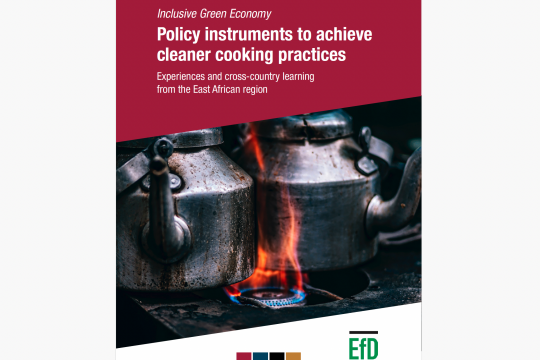Transformation towards an inclusive green economy is one of the prerequisites for achieving the sustainable development goals in Agenda 2030.
If not managed well, economic growth may come at a high price, including pollution, loss of environmental resources, and large negative impacts on human health. By implementing different policy instruments, such as rules, regulations, taxes, fees, subsidies, and information, governments have tried to tackle challenges to sustainable development. But to reverse negative trends much more must be done to make the economic development greener and more socially inclusive.
This report summarizes lessons learned from the IGE cross-country workshop held in Arusha, Tanzania, from April 15 to 18, 2024. It reflects on practical experiences of working towards achieving an inclusive green economy in Eastern Africa by specifically addressing sustainable and just energy transitions.
As the scope of this topic is broad, this year’s theme within the IGE program was selected through a consultative process between the enrolled participating IGE organizations during 2023-2024 and the academic institutions of EfD. This process concluded to focus on opportunities to reduce biomass dependency for clean cooking, and energy-related issues of high relevance in all participating countries.
For over a year, civil servants (IGE Fellows) from the five IGE program countries, together with researchers at EfD centers, have engaged in and worked on developing so-called Transformation Initiatives to find solutions to reduce biomass dependency for clean cooking, with a focus on policy instruments, in their respective countries.
To gain further knowledge in these processes on what works and what does not, IGE Fellows and EfD researchers met in the above-mentioned cross-country peer-learning workshop. The objectives of the workshop were to:
• Share experiences and achievements of the Transformation Initiatives (TIs) so far
• Build a stronger IGE capacity and knowledge through peer learning based on the TI process
• Facilitate a regional IGE network between civil servants and academics.
During the workshop, the civil servants and the researchers presented, discussed, and learned from each other’s ongoing Transformation Initiatives.
This report synthesizes the key lessons. Chapter 1 introduces the theme of biomass dependency. Chapter 2 presents the concept of IGE Transformation Initiatives. Chapters 3 to 7 focus on each country respectively including key lessons learned and chapter 8 presents concluding remarks.
Note that this report is written by some of the EfD partners involved in the IGE program. A special thanks to Marc Jeuland and Philip Adom. The report does not necessarily represent the views of the researchers or the participants from ministries and agencies or their organizations.
